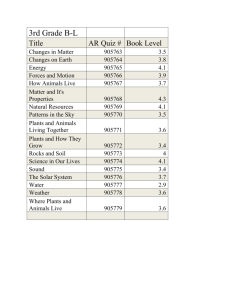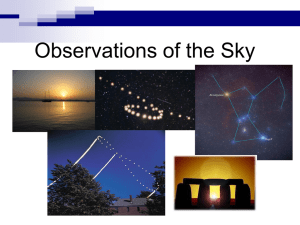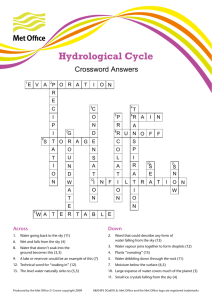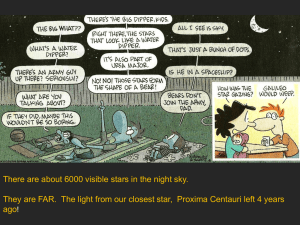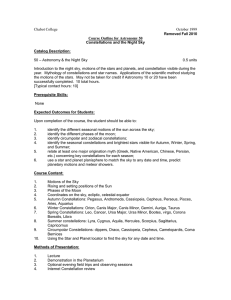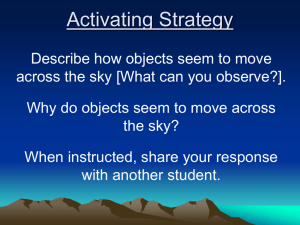Astronomy Final Exam Study Guide
advertisement
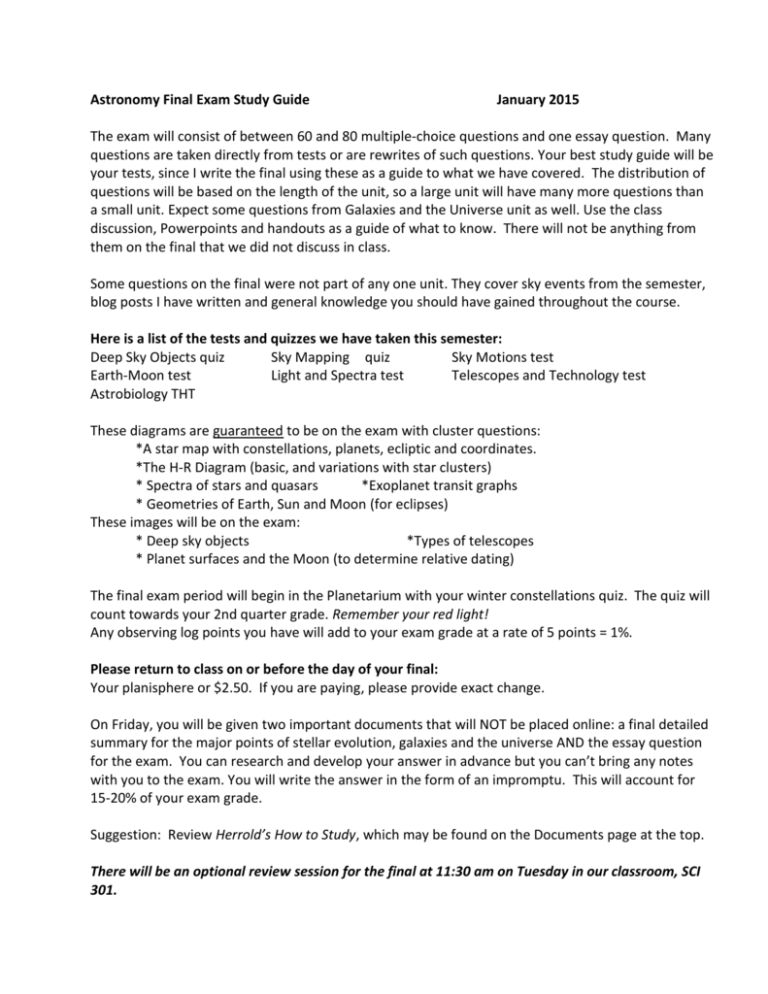
Astronomy Final Exam Study Guide January 2015 The exam will consist of between 60 and 80 multiple-choice questions and one essay question. Many questions are taken directly from tests or are rewrites of such questions. Your best study guide will be your tests, since I write the final using these as a guide to what we have covered. The distribution of questions will be based on the length of the unit, so a large unit will have many more questions than a small unit. Expect some questions from Galaxies and the Universe unit as well. Use the class discussion, Powerpoints and handouts as a guide of what to know. There will not be anything from them on the final that we did not discuss in class. Some questions on the final were not part of any one unit. They cover sky events from the semester, blog posts I have written and general knowledge you should have gained throughout the course. Here is a list of the tests and quizzes we have taken this semester: Deep Sky Objects quiz Sky Mapping quiz Sky Motions test Earth-Moon test Light and Spectra test Telescopes and Technology test Astrobiology THT These diagrams are guaranteed to be on the exam with cluster questions: *A star map with constellations, planets, ecliptic and coordinates. *The H-R Diagram (basic, and variations with star clusters) * Spectra of stars and quasars *Exoplanet transit graphs * Geometries of Earth, Sun and Moon (for eclipses) These images will be on the exam: * Deep sky objects *Types of telescopes * Planet surfaces and the Moon (to determine relative dating) The final exam period will begin in the Planetarium with your winter constellations quiz. The quiz will count towards your 2nd quarter grade. Remember your red light! Any observing log points you have will add to your exam grade at a rate of 5 points = 1%. Please return to class on or before the day of your final: Your planisphere or $2.50. If you are paying, please provide exact change. On Friday, you will be given two important documents that will NOT be placed online: a final detailed summary for the major points of stellar evolution, galaxies and the universe AND the essay question for the exam. You can research and develop your answer in advance but you can’t bring any notes with you to the exam. You will write the answer in the form of an impromptu. This will account for 15-20% of your exam grade. Suggestion: Review Herrold’s How to Study, which may be found on the Documents page at the top. There will be an optional review session for the final at 11:30 am on Tuesday in our classroom, SCI 301.
